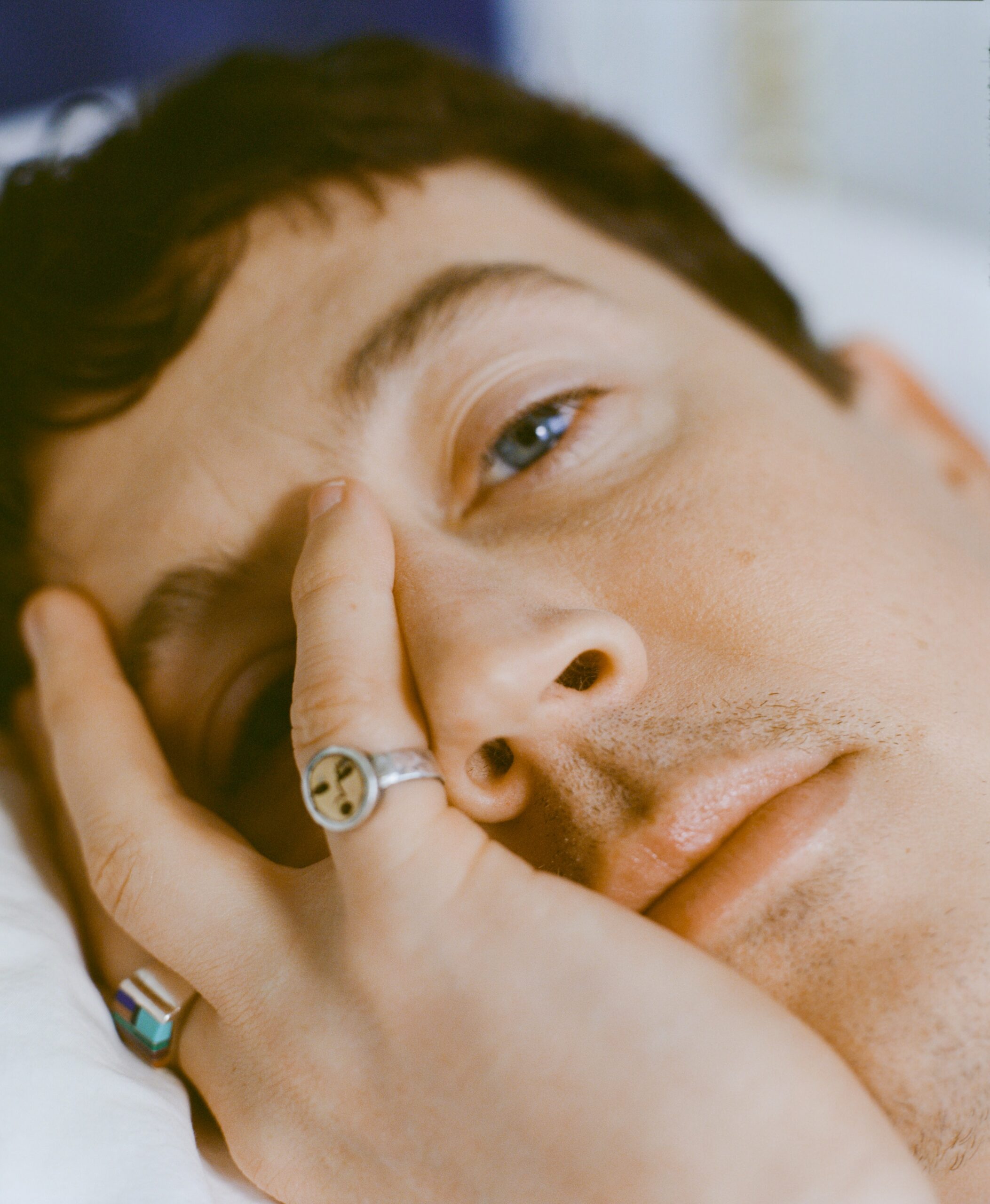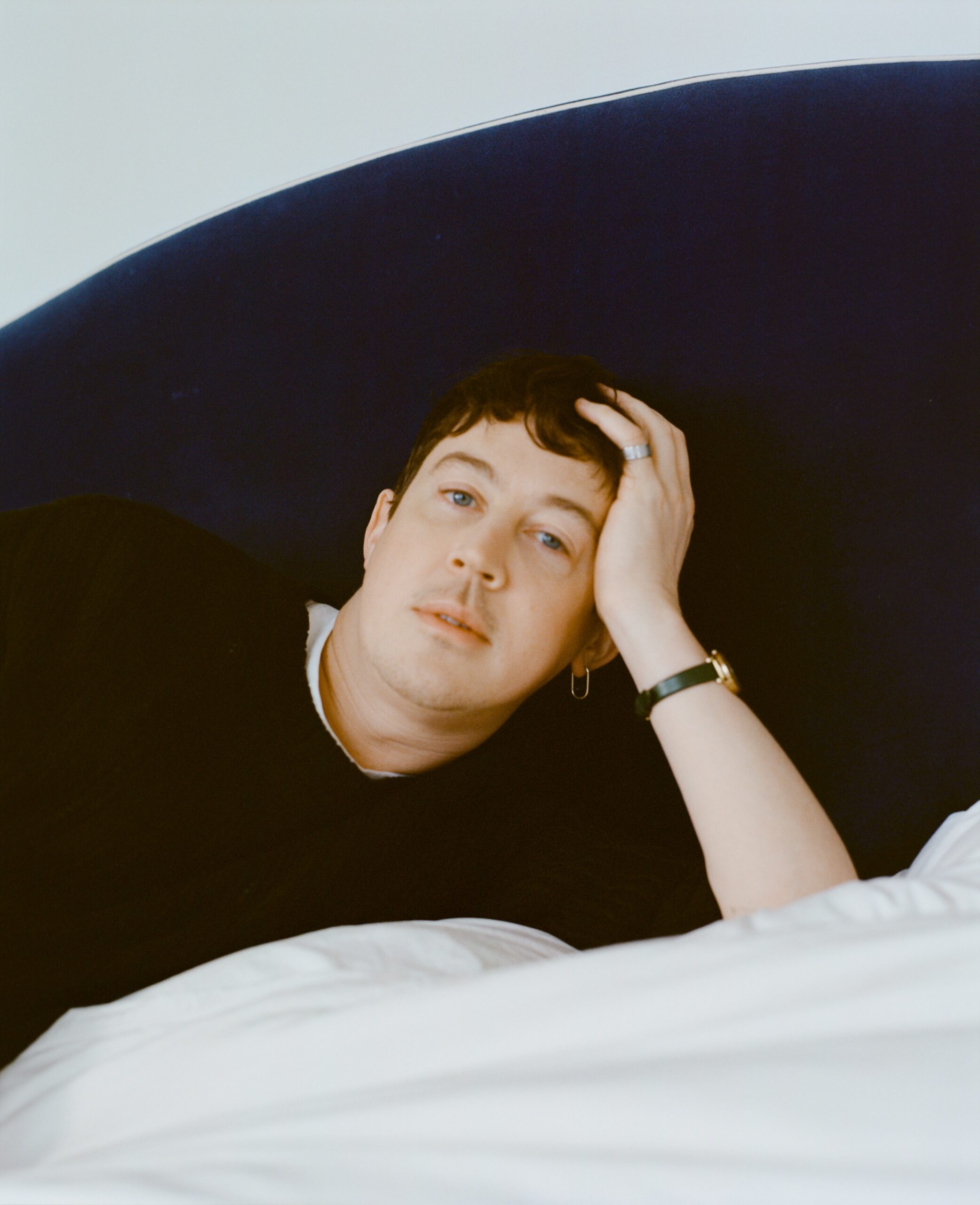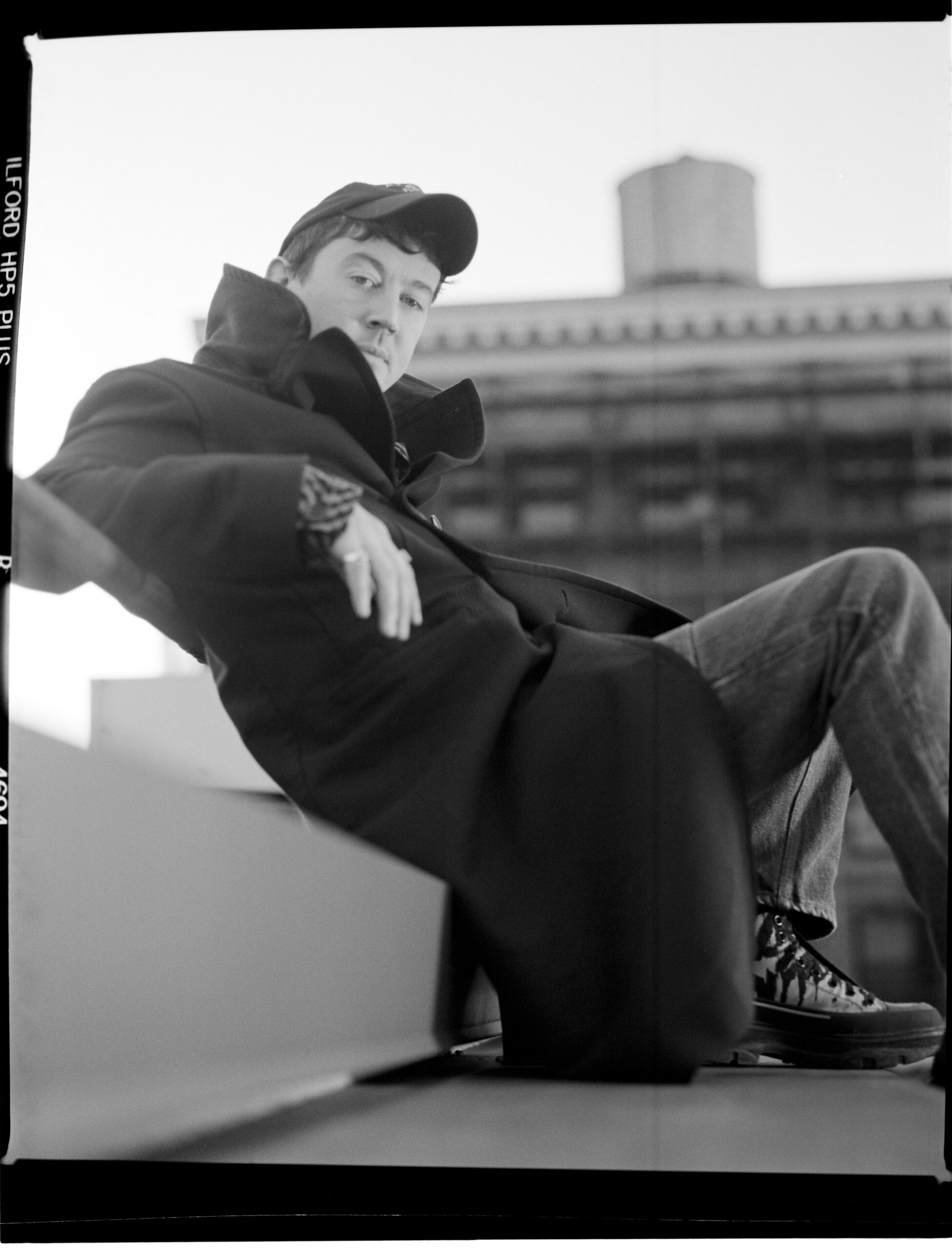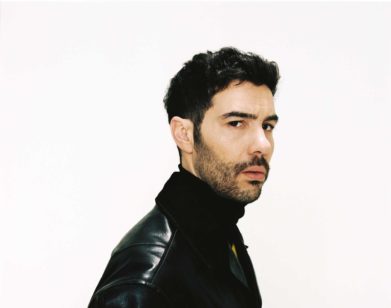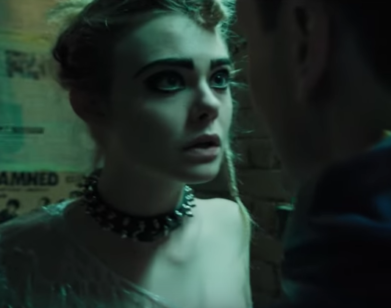IN CONVERSATION
Alex Sharp Tells Carey Mulligan How He Faced Mortality for 3 Body Problem
When 3 Body Problem premiered on Netflix last month, pretty much everyone binged it, including Carey Mulligan. The high-concept sci-fi show, based on the acclaimed novel by Liu Cixin, is an epic that straddles the Chinese cultural revolution, physics-defying mysteries, and the potential of virtual reality. There’s already talk of an even wilder second season in the works. In the show, Mulligan’s friend and fellow actor Alex Sharp stars as Will Downing, a physics teacher with stage-four pancreatic cancer whose motives are shaped by an unusually deep peace he’s made with his own mortality. Sharp is the show’s emotional center, supplying a narrative of love and human connection to the potentially abstract concepts the series explores. He and Mulligan first met almost 10 years ago during Sharp’s intensive Broadway stint in The Curious Incident of the Dog in the Night-Time, his Tony Award-winning post-Julliard break-out. Since then, Sharp has transitioned from stage to screen. As the 3 Body Problem became Netflix’s most-watched series, he and Mulligan got together to talk about facing mortality (with the help of death doulas) and designing luxury women’s handbags, Sharp’s latest venture.—JULIETTE JEFFERS
———
ALEX SHARP: You’re in Devon?
CAREY MULLIGAN: I’m in Devon at home, yeah.
SHARP: Lovely.
MULLIGAN: Getting over a cold. I spent the weekend in a house full of children, half of whom aren’t mine. So I was making enormous amounts of pesto pasta. How are you?
SHARP: I’m good. We’ve been doing a lot of press and that’s died down a little bit now, which is quite nice. I had time to come to New York and see my sister and hang out. Most people I know are in New York, so it’s nice just to come back once in a while.
MULLIGAN: Oh, really?
SHARP: Yeah, because I lived here for more than 10 years. I went to acting school here.
MULLIGAN: Oh, wow. I didn’t know that.
SHARP: Actually, I’ve just moved to London for the first time ever three months ago.
MULLIGAN: Wow. So you went to acting school in New York? How old were you?
SHARP: I went to Juilliard at 21, I think. I left England a few years before that and I was working in call centers and working as a handyman and all sorts of weird stuff. Then I came to New York for acting school.
MULLIGAN: Wow. You did Juilliard and then stayed in New York and did theater. What was your first theater gig?
SHARP: My first job ever was The Curious Incident [of the Dog in the Night-Time]. And that’s when we first met.
MULLIGAN: That was your first ever job?
SHARP: Yeah, it was nuts. I did it for a year, which almost killed me.
MULLIGAN: I’ve never done anything longer. I think the longest one I’ve done is 16 weeks.
SHARP: I think you get 10 days, maybe. But I used one of my days off to see you in Skylight, actually.
MULLIGAN: No way. I’m so honored that you took a night off the theater and went to the theater. That’s crazy.
SHARP: It was a bit of a frustrating experience, because I’d hear about everyone else who was on Broadway and how brilliant they were. But of course, you can’t see anyone because you’re also on Broadway. So it was nice to see people just down the road doing a different thing. You were brilliant with the equally brilliant Bill Nighy.
MULLIGAN: The brilliant Bill Nighy. I was pregnant for that. Could you tell I was pregnant?
SHARP: No, I couldn’t.
MULLIGAN: Oh, I was seven months pregnant by the end of that. I wore bigger and bigger jumpers the whole way through the run. I think towards the end, it started looking a bit suspect. But wow, I can’t believe that was your first job and you did that for a year. Everyone saw that. Did you meet people doing that that you subsequently worked with?
SHARP: I mean, it’s amazing how many people came to see that, because I still meet people I’m just maybe going to work with now who saw it. It’s just nuts to think about how much a play can change your life and career, as that one did for me.
MULLIGAN: What did you do coming off the back of that?
SHARP: Well, I started doing films. I’d never even been on a set before. I’d always wanted to work in film and I was just very keen to take the opportunity to start logging hours, as it were, just to understand how the film world works, because I really had no idea. So I just did a bunch of indie films, anything I could really get my hands on, really.
MULLIGAN: And how did it feel going from a year of theater into indie films? I imagine that must be quite a transition, from starring on Broadway to being in a triple banger in a field somewhere.
SHARP: For a while I mourned the communal element of the rehearsal process and I just found it quite jarring. Everyone shows up having done the work that they do. But then again, film is so intense that you do build a family quite quickly. The work itself was not as much of an adjustment as I thought it was going to be. It’s just a reframing of one’s relationship to the audience.
MULLIGAN: I suppose the thing with theater is that by the time you’re in tech rehearsals, you’re all in the same play. I feel like a lot of the time you show up to indie films and you don’t have any rehearsal. You come in on day one like, “Am I roughly in the same film as everyone else?” I’m always crap at read throughs, and I always bury my head in the script, but it’s hard to go in and just do it. But I find it very different from that lovely period you have with theater where you just feel you know it inside and out.
SHARP: For sure. I’ve only done screen work since then. I love theater. It feels like the fabric of who I am. But I think, partly, that experience was very intense and very hard. Also, I’ve fallen quite in love with the process of working on screen. What I’ve worked out over the years is that the prep before you show up doesn’t really have to be as solitary as I initially thought.
MULLIGAN: What gets you excited? A character in a script, or being part of a director’s vision?
SHARP: The dream is a combo, of course. But I think the writing is the bottom line. If there’s a certain element of a character, it’s almost like an involuntary response when you read something. There’s something that I want to get into. Like, I want to eat it.
MULLIGAN: Marcus [Mumford, Mulligan’s husband] and I completely binged 3 Body Problem on holiday. We went skiing two weeks ago and put the kids to bed every night. And one morning our baby woke up really early, and we obviously couldn’t watch 3 Body Problem in front of our six and eight-year-old, but we were like, “Well, she’s a baby. She doesn’t know we’re going to watch 3 Body Problem at 5:00 AM.” Whoops.” We were literally doing two episodes a night the whole time we were away skiing.
SHARP: Oh, that’s amazing. It’s very dense to binge. When I watched it for the first time, I was like, “I need a break after every episode.”
MULLIGAN: I just found it so compelling. And I absolutely loved every actor in it. How did you get involved?
SHARP: I was asked to audition for it. My agent called me and was like, “Darling, listen. It’s a big sci thing. It’s about aliens or something. They won’t tell us anything.” And I was like, “Okay.” And she was like, “David Benioff and Dan Weiss and Alex Woo were the showrunners.” And then I was quite interested.
MULLIGAN: David Benioff is the Game of Thrones guy?
SHARP: David Benioff and Dan Weiss did Game of Thrones, yeah.
MULLIGAN: So that’s an exciting prospect.
SHARP: I binged Game of Thrones because I had been cast in a Game of Thrones prequel years before. We shot the pilot and it ended up not getting picked up, which I was relieved about because I was having night sweats about having signed a long TV contract.
MULLIGAN: Oh, yeah.
SHARP: So I was just very intrigued about this mysterious alien story that they were doing. I read these two scenes and I was immediately blown away by the quality of the dialogue. I’d just flown over to England to do Living with Bill Nighy, but it was COVID time, so I was quarantined in the countryside near my mate’s house. And I got a call saying, “They’d like to meet you over Zoom.” They told me the whole arc of the character over season one and I was like, “Holy shit, it’s kind of crazy.” And then I read the scripts and was like, “This is nuts in a really good way.” There were parts of it where I was like, “I don’t even know how you shoot that.” I was just really moved by the character and thought he was a quiet hero and very romantic in an interesting way.
MULLIGAN: You’re so good in it.
SHARP: Oh, thank you.
MULLIGAN: Honestly. For anyone who’s reading, we have the same agent, Tor Belfrage. She’s the greatest agent alive, I think. She’s been my agent for 20 years, which makes me feel ancient.
SHARP: She’s literally the greatest.
MULLIGAN: I texted her and I was like, “Tor, he’s so good. I’m crying on holiday.” Because the last time I saw you it was Oscar weekend and we all had dinner and you were like, “It’s a sci-fi thing,” but I didn’t know if you were a robot or an alien or something. It sounded great but I had no context for it. The ideas in the show are nuts and wonderful and there’s just so much love and friendship at the heart of it. And not to ruin it for anyone that hasn’t seen it, but your story in particular is devastating and really beautiful, but it’s never sentimental or slushy.
SHARP: Thank you. That was one of my biggest fears, the danger of sentimentality with a part like that.
MULLIGAN: Totally. What was it like to make?
SHARP: Oh, boy. Well, it was a very long process. Yeah, I mean it was an extraordinarily profound experience. As you say, the character, he almost has a separate story. I would talk to my mates who I would occasionally have a scene with and I’d be like, “What have you been up to?” And if it was flying through the air on a harnessI. was like, “Wow, what the hell? Are we in the same thing?” But just to explore the mindset for a minute, the character is deeply at peace with his own mortality. I didn’t really know my way in when I first took the job. I was freaking out.
MULLIGAN: Yeah, it’s scary shit.
SHARP: Yeah, I was scared. But working with David and Dan and Alex Woo was extraordinary. They’re just masterful. Even with the amount of things that they’re managing, when I would go to them with wildly specific questions, they’re so clued in that they have immediate answers. The level of multitasking is unfathomable.
MULLIGAN: How do you prep to play this character? Presumably, you are not completely comfortable with your own mortality. I’m not.
SHARP: I’m not either, not even slightly.
MULLIGAN: Can you get to the end of the day and be like, “I’m done, I’m going to go watch Love Island?” How much can you leave the character behind when you go home?
SHARP: There was an increasing sense of inability to detach from that state. It was almost like trying to achieve a state as opposed to a character. I felt like the only option was to just try and remove absolutely everything and just show up in that altered, stripped-back state. I actually worked with death doulas, which I didn’t know was even a thing. I mean, I’d heard of a birth doula, but never a death doula.
MULLIGAN: Oh, gosh.
SHARP: There was one in particular who I worked with, Alua Arthur, who’s probably the most famous death doula and does great TED talks if anyone’s interested in facing their mortality. She did some exercises with me that she does with people who are terminally ill.
MULLIGAN: Wow. Fuck.
SHARP: I felt like that was the only way to do it, because it’s such a natural, almost muscular and involuntary instinct to get away from that feeling. Similarly, I was blown away by how you captured an adjacent thing to this in Maestro. I’ve thought about your performance so often since watching it.
MULLIGAN: Aw, thanks.
SHARP: It’s truly one of the greatest performances and just blew me away in so many ways. I really was so deeply moved by the scene right after you are diagnosed, where you have two friends come visit you.The isolation that you captured in that was just devastating. I thought, “I wish I’d seen it while I was doing 3 Body Problem so I could have nicked some stuff off you.”
MULLIGAN: We’re all vultures with that stuff. I would’ve done the same if I’d seen 3 Body Problem before Maestro. I mean, I had to spend just a couple of days in that state, but you had to do it for a year, so I can’t imagine the toll that takes on you. Did it make you go like, “I’m going to seize the day. I’m alive. I’m going to go climb Kilimanjaro”?
SHARP: Well, I went to Italy for five months and studied making women’s luxury handbags.
MULLIGAN: What? What kind of handbags are they? And can I buy one of your handbags? Are you going to start a handbag brand?
SHARP: Well, possibly. But I feel I’d be jumping the gun slightly to start a handbag company at this time.
MULLIGAN: So you’re just focusing on the acting, but the handbag thing is in your back pocket for the future?
SHARP: I’m focusing on the craft of it because it’s not something I have fully mastered. I mean, people do spend their entire life doing that. At the moment, I’m just making them for individuals.
MULLIGAN: Where did you go in Italy to do this?
SHARP: Florence. I literally Googled “best handbag course in the world” and there were a couple different ones. There was a really good one in Japan, but I don’t speak Japanese and the course is not in English, so that was pretty quickly ruled out.
MULLIGAN: Oh, this is fascinating. I’m just completely repelled by the idea of going off and learning anything new. I don’t want to do anything unless I’m very good at it naturally and can already do it. So I’m wildly impressed that you’ve gone off to go and learn something. Are you working on anything now that you can talk about, besides handbags?
SHARP: There are a couple of things acting-wise that I’m looking at. There’s one thing I’m very, very interested in, but I don’t want to jinx it.
MULLIGAN: Don’t jinx it.
SHARP: Not that I’m a superstitious person, but sometimes I act quite superstitiously.
MULLIGAN: So do I, so we’re not going to jinx it.

